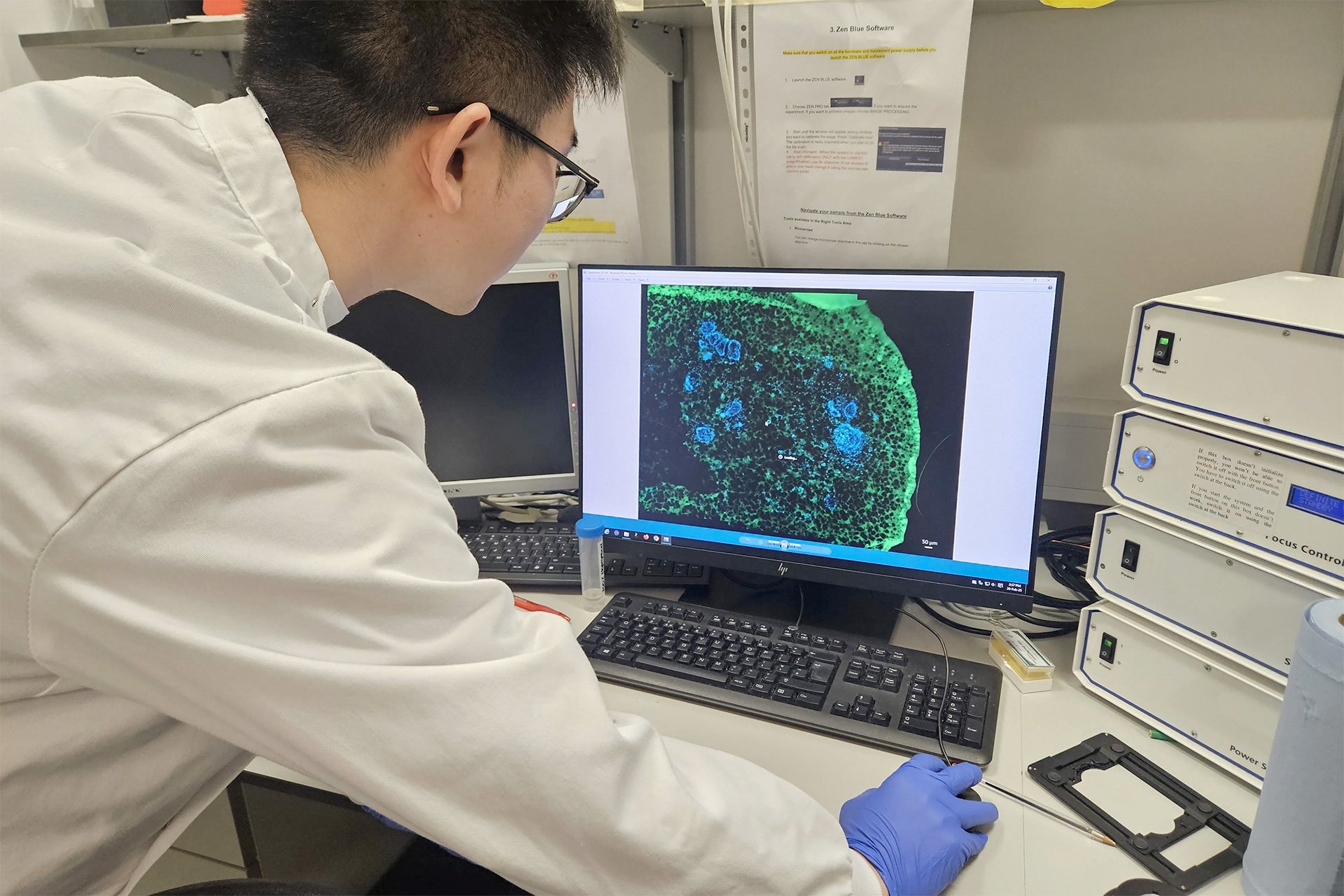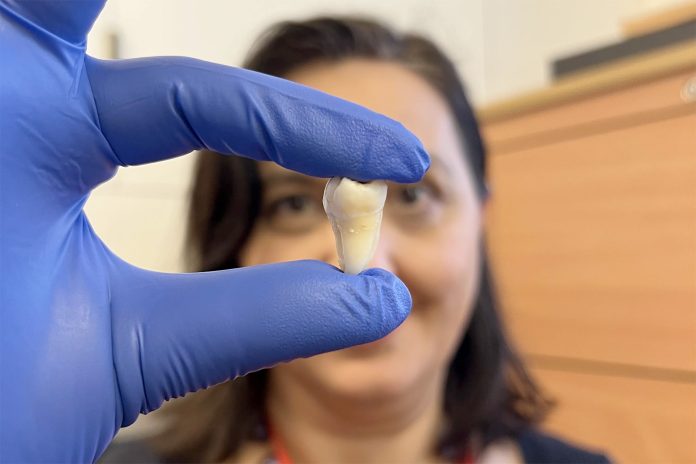A team of researchers from King’s College London and Imperial College London has made a notable step toward developing lab-grown teeth that could one day replace traditional fillings and dental implants. This research is part of a growing focus on regenerative medicine, where scientists aim to use the body’s own biology to repair or replace damaged tissues.
Unlike fillings and implants—which are artificial, fixed solutions that don’t change or adapt over time—lab-grown teeth made from a patient’s own cells could integrate more naturally with the jaw and function like real teeth. According to Dr. Xuechen Zhang, from the Faculty of Dentistry, Oral & Craniofacial Sciences at King’s College London, “Fillings aren’t the best solution for repairing teeth. Over time, they will weaken tooth structure, have a limited lifespan, and can lead to further decay or sensitivity. Implants require invasive surgery and good combination of implants and alveolar bone. Both solutions are artificial and don’t fully restore natural tooth function, potentially leading to long-term complications.”
To address this, the team has developed a specialized material that mimics the natural cellular environment of early tooth development. This material enables cultured cells to slowly send signals to one another over time, replicating the gradual communication process seen in the body. Past attempts to grow teeth in the lab failed in part because signals were delivered all at once, which did not reflect real-life developmental conditions.
“We developed this material in collaboration with Imperial College to replicate the environment around the cells in the body, known as the matrix,” explained Zhang. “This meant that when we introduced the cultured cells, they were able to send signals to each other to start the tooth formation process.”
The approach relies on using stem cells and bioengineered environments to guide the growth of new tooth structures. Researchers are now exploring two possible paths for clinical application: transplanting young tooth cells into the mouth and allowing them to grow in place, or growing a complete tooth in the lab that could later be implanted.

Dr. Ana Angelova Volponi, corresponding author of the study, emphasized the broader significance of the work. “As the field progresses, the integration of such innovative techniques holds the potential to revolutionise dental care, offering sustainable and effective solutions for tooth repair and regeneration. The work being conducted at the Faculty of Dentistry, Oral & Craniofacial Sciences at King’s College London exemplifies the cutting-edge research driving this transformation, highlighting our Faculty’s commitment to advancing oral health through scientific discovery.”
While still in the research phase, the study offers a new direction in dental treatment that could move beyond artificial solutions toward biologically compatible alternatives. The findings were published in ACS Macro Letters, a journal focused on materials science and molecular engineering.
Clinical applications remain in the future, but this development marks a meaningful step toward lab-grown teeth becoming a practical solution for dental repair—especially for patients seeking alternatives to traditional methods.
Source: King’s College London



